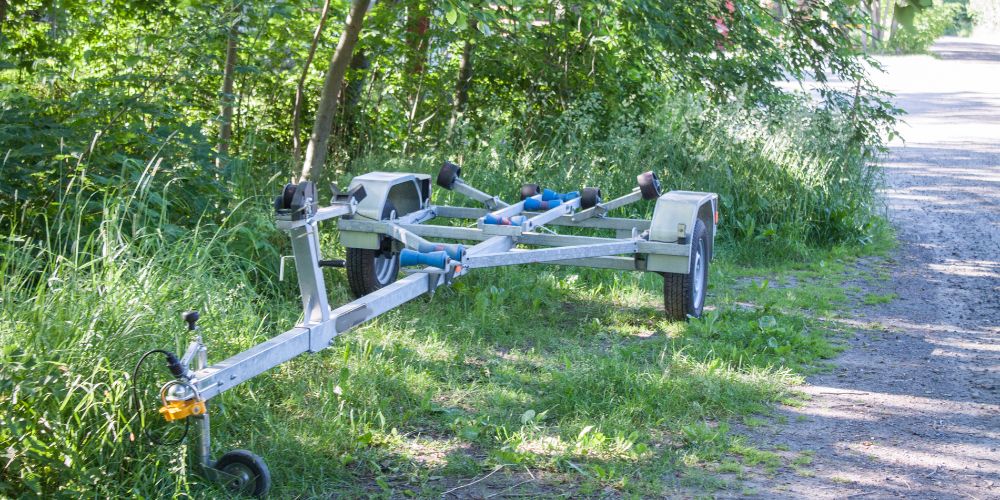
Aluminium boat trailers are required if you want to transport your boat from one location to another safely. Selecting the ideal trailer may make a big difference in your sailing experience by guaranteeing transportation safety and ease. Whether you’re a leisure boater, an enthusiastic fisherman, or someone who just loves to explore new waterways, choosing the finest aluminium boat trailer necessitates giving a lot of different things considerable thought. Everything you need to know to make an informed choice will be included in this handbook.
Understanding aluminium boat trailers
Boat owners frequently pick aluminium boat trailers due to their reputation as being strong and light. Aluminium trailers have benefits over their zinc-plated equivalents, namely durability against corrosion, which is crucial for sustaining the trailer’s lifetime, especially in saltwater settings. Also, compared to other materials, aluminium trailers are often less maintenance-intensive and easier to manoeuvre.
Key Considerations When Choosing an Aluminium Boat Trailer
- Boat Size and Weight Compatibility: The trailer must be strong enough to withstand the size, and the weight that you will load onto it is equally important. Make sure the trailer you are going to use has the appropriate weight rating for your vessel or is at least capable of handling the weight of your vessel at the time of towing.
- Trailer Length and Width: The trailer should be big enough to easily fit the size of your boat with space to spare. Be certain to accurately measure the boat, especially the length and beam (width), to match the trailer size.
- Type of Trailer: It is for this reason that one needs to weigh between a bunk trailer and a roller trailer. Bunk trailers offer more support following the hull of the boat, and roller trailers make it easy to launch and retrieve your boat. Your choice could depend on the type of boat that you have or the method by which you wish to launch it.
- Single or Tandem Axle: Single-axle trailers are relatively lighter and can easily be towed compared to tandem-axle trailers, but the latter can accommodate more substantial boat weights, thus giving better weight distribution. Select depending on the tow vehicle and the size of your boat that can be towed or transported.
- Braking System: In most cases, the combined weight of the boat and trailer usually calls for a braking system. There are many types of trailers, some with hydraulic surge brakes and others with electric brakes, to enhance braking and safety during transportation.
- Corrosion Resistance: Aluminium trailers do not corrode, but think of additional anti-corrosive paint or coating if the boat is often used in marinas with saline water. This all helps to minimise wear early on and thus almost certainly add more years to the life of the trailer.
- Ease of Maintenance: Determine how convenient it is to maintain the trailer. The moving part on aluminium trailers should also be lubricated frequently, even though it is less likely to corrode easily like in steel trailers.
Top brands and models
Think about trustworthy businesses recognised for their dependability and quality while looking for the finest aluminium boat trailer. Here are a few well-liked choices:
- Magic Tilt Aluminium Boat Trailers: Popular for their quality and availability of models for use in different sizes of watercrafts.
- Load Rite Aluminium Boat Trailers: Boasts of selling trailers that are resistant to corrosion and have provisions to suit the boats’ needs.
- Continental Aluminium Boat Trailers: Lightweight trailers that are strong for easy pulling into and out of the water are featured.
- EZ Loader Aluminium Boat Trailers: Popular for their easy operations and versatility in the sense that they can be adjusted to suit various-sized boats.
Maintenance Tips
To ensure your aluminium boat trailer remains in optimal condition:
- Rinse After Use: You must wash the trailer after every use, particularly if you have hauled the trailer with salt water.
- Inspect Regularly: View for the presence of corrosion, small holes, or signs of thread loosening, such as holes or rounded shapes, as shown below. Respond to the grievance immediately in order to avoid escalation of the problem.
- Lubricate Moving Parts: Ensure the trailer’s frequently moved parts, like wheel bearings and winches, are adequately lubricated to minimise grinding and other related noises.
- Store Properly: The above precautions should be taken to prevent any adverse effects on the trailer; it should be parked in a dry, shaded area when not in use.
Conclusion
Understanding your boat’s needs, taking into account different trailer characteristics, and selecting a reliable manufacturer with a solid reputation for dependability and quality are all important when selecting the finest aluminium boat trailer. You can make sure that your vessel is transported safely and conveniently by giving consideration to elements like corrosion resistance, weight capacity, and kind of trailer. Investing in the correct aluminium boat trailer will improve your boating experience for years to come, whether you’re planning a weekend fishing trip or a coastal expedition.